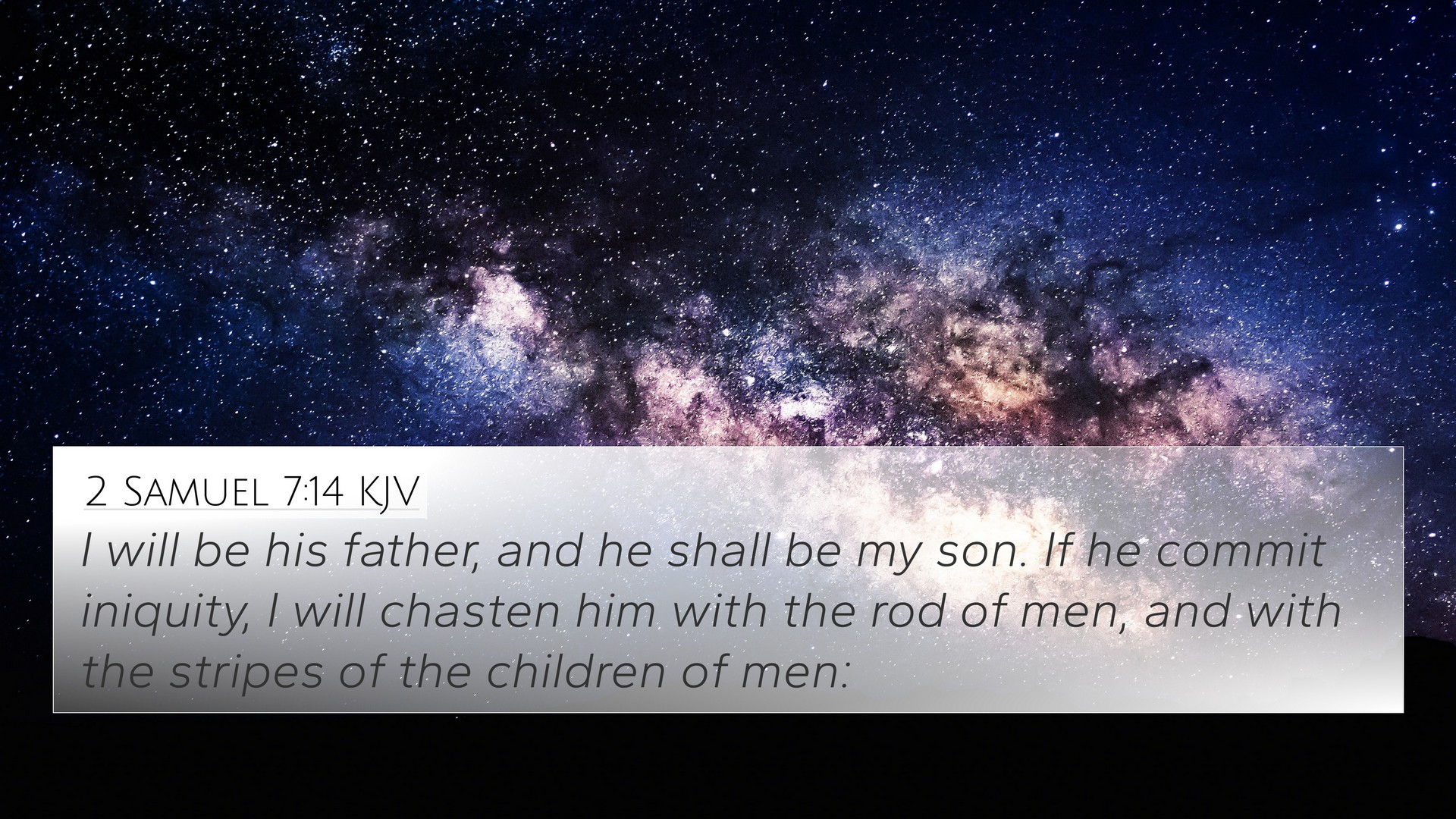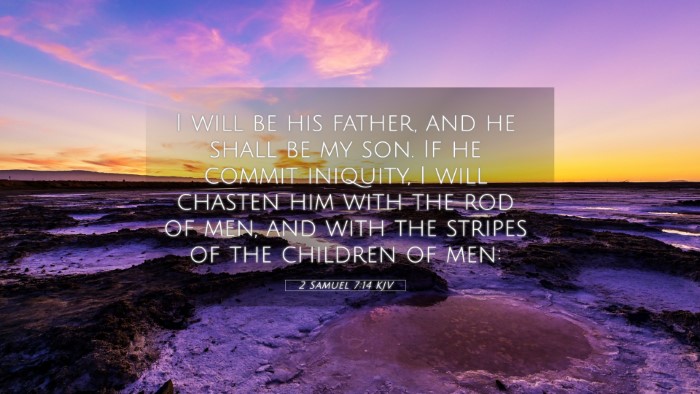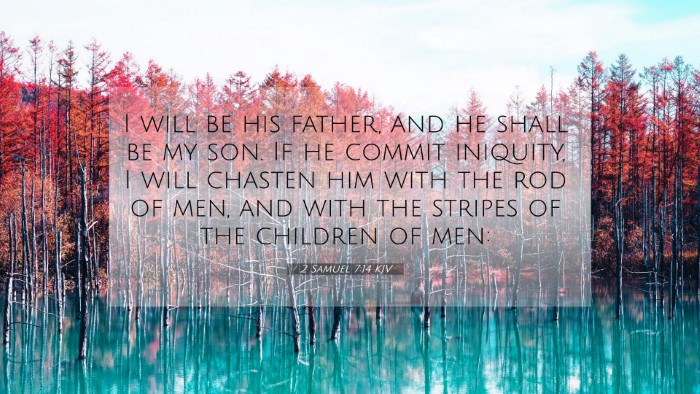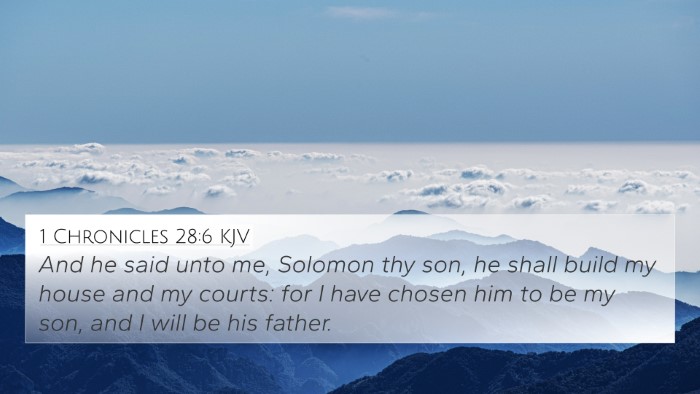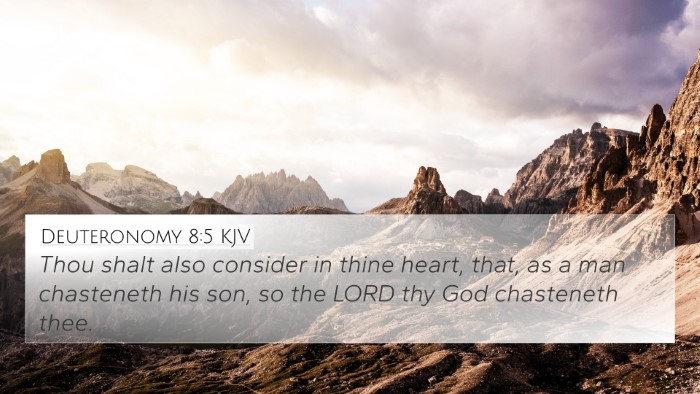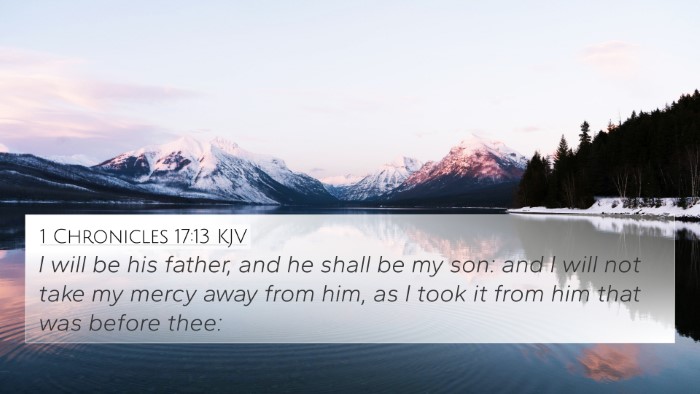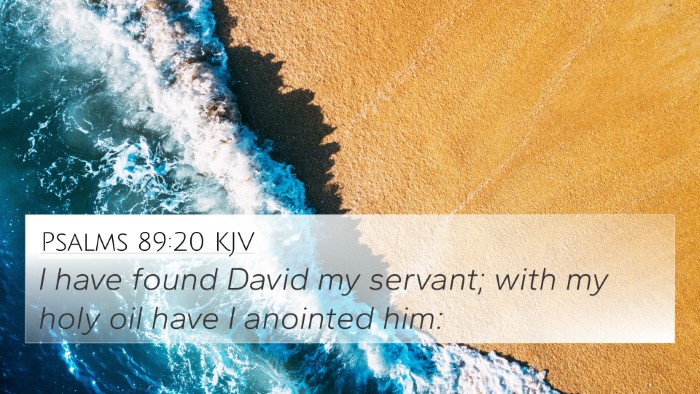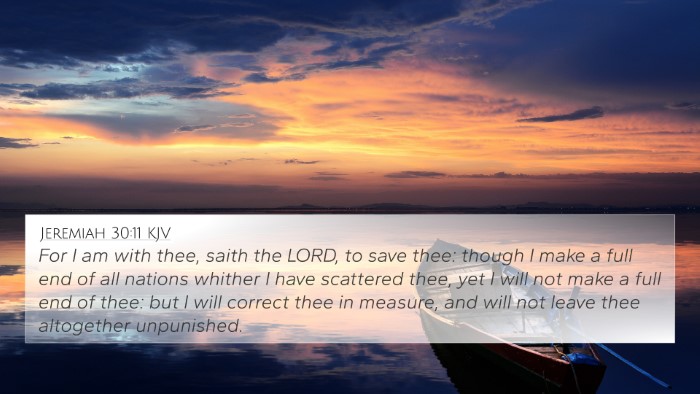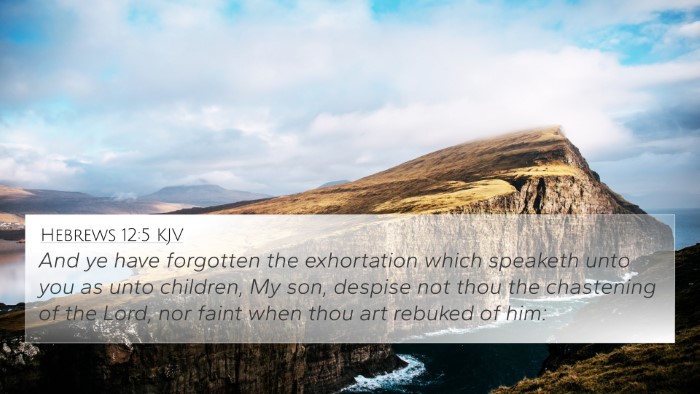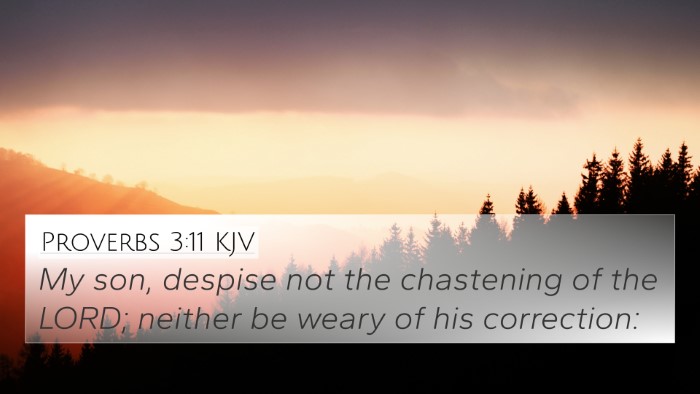Understanding 2 Samuel 7:14
Verse Text: "I will be his father, and he will be my son. When he does wrong, I will punish him with the rod of men, with floggings inflicted by human hands."
Overview
This verse is part of the covenant God made with David, where He establishes a dynasty through David's lineage. It signifies the intimate relationship between God and David’s descendants, as well as the themes of responsibility and discipline inherent in leadership.
Commentary Summaries
Various public domain commentaries provide insights into the profound implications of this verse:
-
Matthew Henry:
Henry explains that this verse highlights God’s paternal relationship with the king. It suggests that while God will show love and care, He will also administer justice and discipline when the king strays from righteousness. This duality is essential for understanding God’s governance over His people.
-
Albert Barnes:
Barnes discusses the prophetic nature of this passage, noting how it points to the future reign of Christ as the ultimate fulfillment of the Davidic covenant. He illustrates how God’s promise to discipline reflects His commitment to righteousness and the need for His people to remain faithful.
-
Adam Clarke:
Clarke emphasizes the metaphorical use of “father” and “son,” pointing out the implications this holds for understanding sonship in a broader, covenantal sense. He also reminds readers that discipline serves as a corrective rather than a punitive measure, aimed at guiding the king back to the right path.
Key Themes
Thematically, 2 Samuel 7:14 integrates several critical biblical concepts:
- The Nature of God: God's role as a father signifies His parental approach to leadership, characterized by care, guidance, and correction.
- The Davidic Covenant: This promise establishes a lasting lineage meant to culminate in Jesus, thus bridging the Old Testament promises with New Testament fulfillment.
- Discipline and Justice: The verse underscores the balance within divine governance, indicating that love does not exclude accountability.
Bible Verse Cross-References
This verse has multiple connections that enrich its meaning:
- Romans 1:4: Affirms Jesus Christ as the Son of God, establishing a link between David’s lineage and the messianic identity.
- Hebrews 1:5: Quotes this verse to emphasize Jesus’ unique relationship with God as His Son.
- 1 Chronicles 22:10: Affirms the promise of an everlasting kingdom through David’s son.
- Psalm 89:26-27: Reflects themes of sonship and kingship associated with David’s heirs.
- 1 Kings 2:19: Illustrates the nature of the king’s relationship with God as a son receiving honor and responsibility.
- Luke 1:32-33: An angelic proclamation concerning Jesus’ eternal reign, echoing the covenant promise to David.
- Matthew 1:1: Begins the genealogy of Jesus with a reference to David, establishing the covenant lineage.
Thematic Bible Verse Connections
When exploring the thematic connections between this verse and broader biblical narratives, we can see how God's covenantal promises link not just individuals but entire trajectories of faith:
- John 3:16: Links the concept of God as a father who sacrifices for His children, resonating with the themes of love and relational commitment.
- Matthew 5:9: The idea of God’s children extends to believers as peacemakers, reflecting the needed virtues in leadership.
- Galatians 3:26: Connects believers to the idea of sonship, reinforcing the ongoing relevance of the father-son relationship throughout biblical texts.
Cross-Referencing Biblical Texts
Utilizing tools for cross-referencing, such as a Bible concordance or a Bible cross-reference guide, can deepen the understanding of how 2 Samuel 7:14 interrelates with various scriptures. Here are some methods for effectively studying these connections:
- Engaging in Bible Cross-Reference Guide: Leverage resources that detail thematic and narrative parallels between texts.
- Utilizing Bible Concordance: Find common themes and keywords across various contexts, allowing for an expansive view of scripture connections.
- Comparative Bible Verse Analysis: Develop a detailed study by comparing verses regarding God’s promises across different books.
Conclusion
The verse 2 Samuel 7:14 serves as a significant touchstone in understanding God's covenant with David and, by extension, His expectations of leadership among His people. The relationships and themes this verse touches on resonate throughout scripture, establishing links necessary for a deeper study of biblical texts and facilitating a rich dialogue between the Old and New Testaments.
